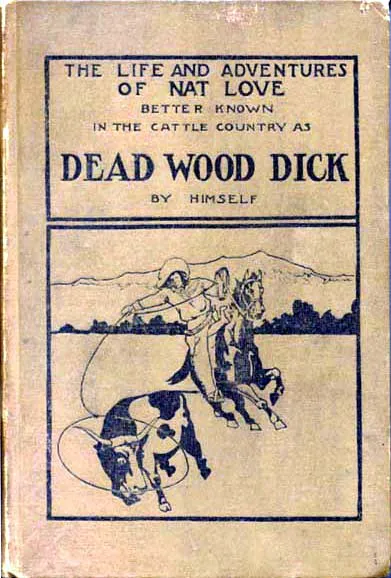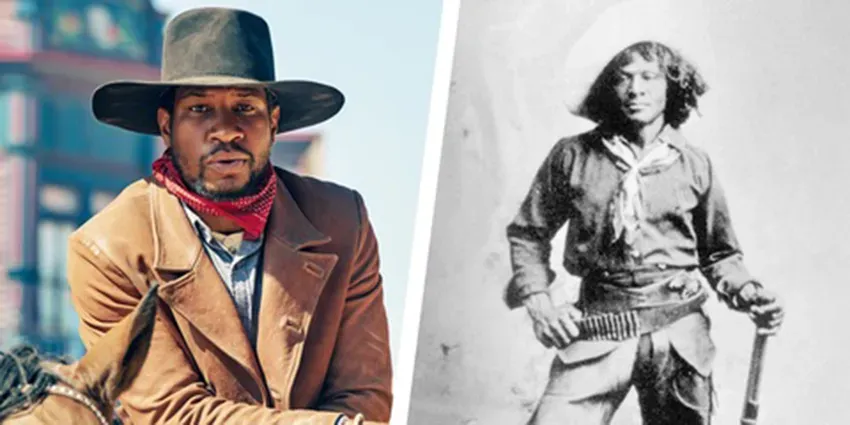Old West movies and popular stories would have us believe that Black cowboys were a rare commodity, but a little digging shows that the specific way American history unraveled contributed to a high number of Black cowboys that go unmentioned.
In the 1500s the growth of cattle farming in Texas (colonized by Spain) contributed considerably to the development of the cowboy lifestyle. Despite Mexico being against slavery in the 1800s, white American settlers brought their slaves with them; as the number of settlers and cattle ranches grew, so did the number of slaves.
By 1860, 30% of Texas's population were slaves, who were depended on to maintain the land and cattle when the ranchers headed east to fight in the Civil War. This resulted in a large number of skilled Black cowhands, who were, when freed at the end of the war, hired by ranchers who had become desperate for help. Historians estimate that one in four cowboys were Black.
Netflix's recent release of The Harder They Fall, a Western starring Black cowboys, has been met with both criticism and praise. Some critics choose to focus on casting errors they attribute to colorism – which does tend to be a huge problem in the film industry. But others aren't allowing one flaw to distract from the bigger picture.
The film's creators have made it clear that the events depicted in this movie are fictional, but the majority of the main characters are based on real people: real-life Black cowboys who are rarely mentioned and intentionally left out of popular American history discussions.
The energetic story follows Nat Love (played by Jonathan Majors) as he chases down revenge and fights for love with his crew of outlaws. He battles hatred, and comes face to face with the worst parts of himself and his history.

Love wrote in his real-life autobiography that he was born enslaved in Tennessee, in 1854. He learned to break horses on his plantation and headed west after the Homestead Act, which allowed freed slaves to claim land. He hung with Billy the Kid, learned to herd steer, and says he won contests in roping, bridling, saddling, and shooting. He is one of as many as five people claiming to be the real "Deadwood Dick."
The movie's biggest controversy comes from its depiction of Stagecoach Mary, played by Zazie Beetz, a petite, light-skinned Black woman. In fact, Mary Fields was a large, dark-skinned woman who carried a rifle and revolver and intimidated those who thought to rob her with her height and demeanor.
Mary was freed after the Civil War and spent some time in Ohio working in a convent, but her tendency to drink, smoke, shoot, and wear men's clothing displeased the bishop. It did, however, give her the rough reputation that gained her a contract from the postal service as an independent contractor who delivered mail. She was the first Black woman in this role, and it suited her perfectly.
Bass Reeves (the first Black deputy US marshall west of the Mississippi), James Beckwourth (a skilled fighter and explorer), Bill Pickett (a rodeo showman who introduced bulldogging), Rufus Buck, and Cherokee Bill (both dangerous outlaws who terrorized the West) were all real people as well. Controversy aside, The Harder They Fall presents these characters in a way rarely seen on screen, each one unapologetically Black and a force to be reckoned with. While this isn't the first movie to depict Black cowboys, it is the first of its kind.
Without a single use of the N-word, this Western with a predominantly Black cast and a storyline not rooted in slavery, shows that Black people have always been active and more present throughout history than we've been led to believe. Although The Harder They Fall is a work of fiction, it highlights real people, sparks curiosity, and brings their untold stories out of the dark.


